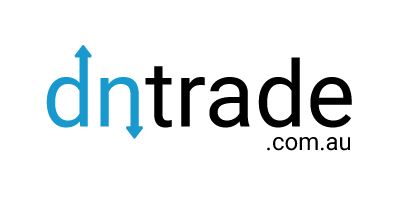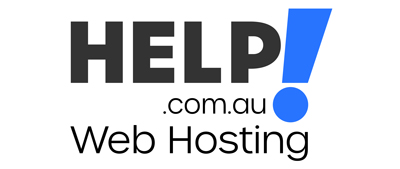Mainstream media has picked up the story. On a side note it seems very easy being a non-breaking news "journalist" these days. All you have to do is read reddit.com and patch together a story from the top posts and comments, whatever that may be.
Facebook accused of defrauding advertisers by attracting fake 'likes'
http://www.theage.com.au/technology...-by-attracting-fake-likes-20140213-32j1h.html
Facebook is the first port of call for anyone cultivating an online following for their cause or company but for one user, more "likes" didn't translate to more loyal fans - quite the opposite.
Sydney-based science commentator Derek Muller has accused the world's biggest social network of defrauding advertisers by targeting their paid ads at fake accounts.
Mr Muller told Fairfax Media the people who act on paid advertising messages are not real, but scammers who set up fictitious accounts - typically operated out of Egypt, India, and Bangladesh - to artificially inflate the popularity of Facebook pages through multiple likes.
An "Ahmed Ronaldo" from Cairo, whose page consists of pictures from Portuguese footballer Christiano Ronaldo and whose only activity has been to like more than 3000 pages, including competing brands across multiple product ranges, is an example of a fake fan Muller said he did not need to pay to reach.
Advertisement
He said the ads he bought from Facebook only resulted in fake likes, and diluted the value of his Veritasium page, which promotes his YouTube science-video channel. He claims Facebook served the ads to fake accounts at the expense of genuine users and recent improvements to the system have not fixed the problem.
Mr Muller originally made the claims in a video he posted on YouTube.
Facebook Australia spokeswoman Antonia Christie denied the allegations while admitting the social network was cracking down on the sources of fake likes.
"Fake likes don't help us," Ms Christie said in an email statement.
"For the last two years, we have focused on proving that our ads drive business results and we have even updated our ads to focus more on driving business objectives. Those kinds of real-world results would not be possible with fake likes. In addition, we are continually improving the systems we have to monitor and remove fake likes from the system."
Mr Muller said he decided to recently investigate the issue after Facebook restricted the reach of posts and started charging people to appear before new users.
In early 2012, Muller's Veritasium Facebook page had about 2000 likes garnered via online word-of-mouth and sharing on social media. At the time, he claims, every post would reach between 4000 and 6000 people - two to three times the number of likes - as it was shared with fans, friends, and then friends of friends.
Buoyed by his success he used Facebook's official advertising service to promote his page to more of the site's users, in the hope they too would like the page. He spent $1500 on a campaign targeting users around the world, running from May 13 to October 2012. It worked. It brought in 80,000 likes, and his total fans reached 100,000: an increase of more than 5000 per cent.
It seemed like a great result but he claims that he quickly found that, on Facebook, more is less.
While his Facebook likes went up, his reach, as a percentage of total likes, dropped drastically: every time he posted new content to his 100,000 fans, it would only reach about 10,000 users, or around 10 per cent.
He claims these disengaged users fit the profile of a fake user, based in a developing country and liking lots of different pages.
In the space of a few months, following the use of the site's ad program, he claims his reach dropped from a multiple of 2-3 times the number of Facebook fans, to less than a tenth.
Mr Muller told Fairfax Media that 80,000 of the likes "were not really genuine accounts and they were certainly not interested in what I do".
"I used Facebook advertising to get these followers who were not fans; they didn't care, and therefore were never going to engage with anything I posted. Facebook created the illusion of a big following without the actual genuine article."
James Boston, sales director at Melbourne digital creative agency Krafthaus, believes Mr Muller is right. He said it was easy to buy fake likes from a specific region, including Australia.
"This isn't just something that would affect accounts that have acquired fake likes (via Facebook's promotions or otherwise) but also those who choose to promote posts to a specific demographic or region. These types of posts go to people who aren't currently liking a page, but its effectiveness is diluted by the presence of these fake accounts."
Search engine optimisation (SEO) practitioner Matthew Carpenter previously sold "likes" via the website getwithsocial.com and has been "inside" in the "clickfarm" community, although not as an active participant.
Carpenter agrees most likes come from fake accounts, and that scammers do random, sophisticated actions - such as liking a whole range of pages, not just the one they're paid to like - to avoid detection.
"I don't think Facebook is stupid enough to be directly involved with selling fake likes, however there is no way they don't know what's going on," Mr Carpenter said.
"There are a number of reasons why these fake accounts exist with the most obvious being that they're all run by the same group that then sell likes."
He said that potential advertisers should use Facebook's Power Editor application to manage their campaigns, including ad placement, bidding options and targeting. He also said that ads should be targeted at specific device types, including those running Android 4.2+ and iOS 6+, which are typically used by legitimate users in Western countries.
"The fake accounts are being run with software on desktops so if your targeting is set as say, mobile, only the chances of you receiving real engagement is much higher".
Mr Boston said the issue could be easily avoided by Facebook limiting the number of pages that one person could like in total, or even in a day.
"If Facebook fails to put in measures such as these, it is because it is not in their interest commercially."






